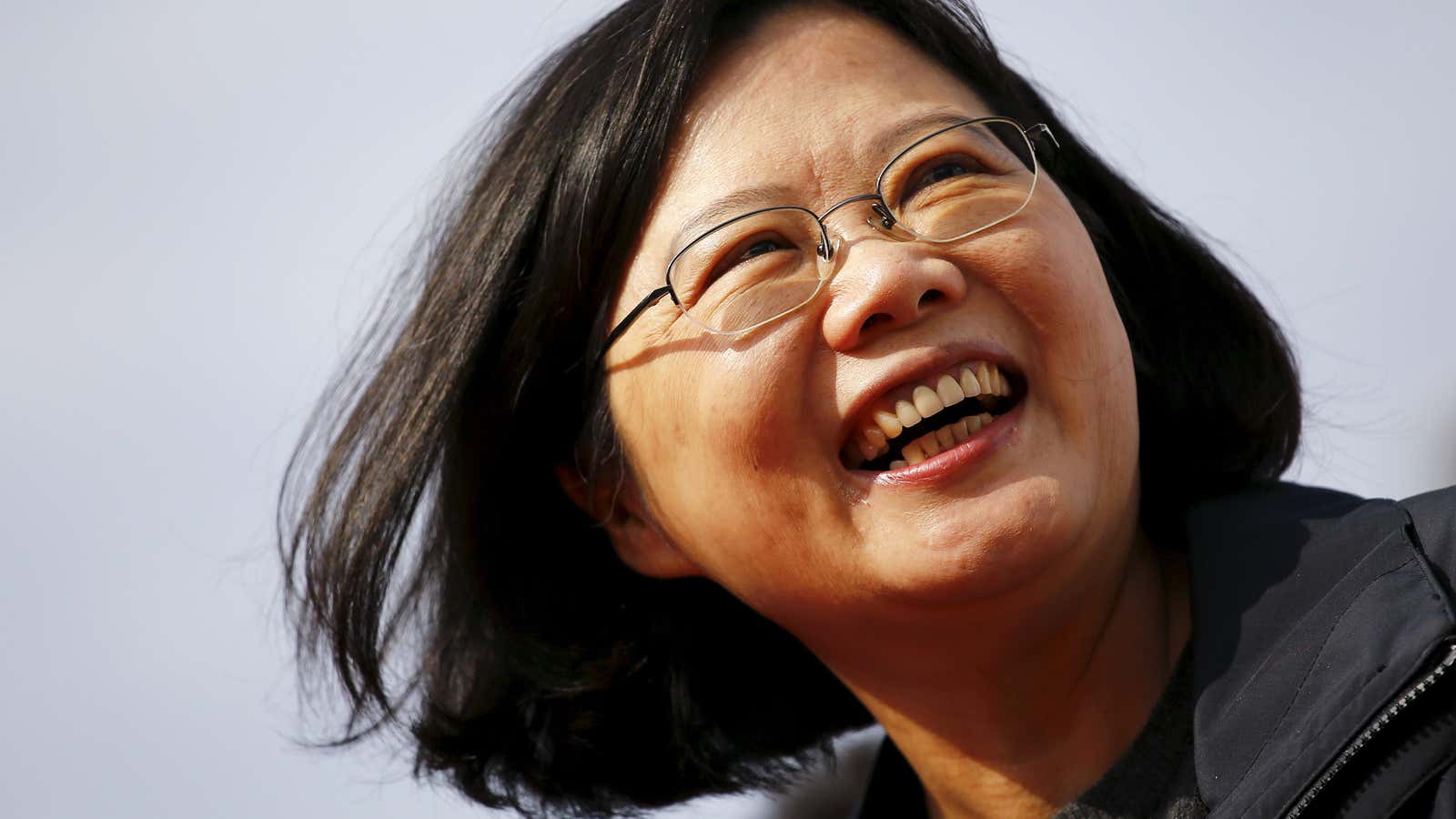Taiwan’s new president, Tsai Ing-wen, took office last week. After advocating for a strong democratic Taiwan, Tsai won the election by a landslide in January. Now, the relationship between Beijing and Taipei is plummeting.
A column published Tuesday (May 24) in China’s state-controlled media is just the latest attack from Beijing, but it is unusual in its approach. It attacks Tsai not for her positions, but for something more innocuous: being single.
The piece (link in Chinese) appeared in the International Herald Leader, a newspaper owned by Beijing’s state newswire Xinhua. The author, Wang Weixing, serves as director of Beijing’s semi-official intermediary for handling Taiwan affairs, the Association for Relations Across the Taiwan Straits.
According to Wang, all sorts of problems stem from Tsai’s unmarried state:
From a humanistic perspective, as a single female politician, [Tsai] doesn’t bear the burdens of emotional love, family constraints, or child rearing. She is leaning toward an emotional, personal, and extreme development of her political behavior and strategies. As for political maneuvering, she thinks less in strategic directions but more in tactical details. She is extreme in achieving short-term goals, but takes less account of long-term ones.
Tsai has had a “simple” history of relationships, with just one known boyfriend, he notes, who she dated in the US and who died in an accident. Wang says her singlehood and family background (her father once fixed planes for the Japanese army) translate into an aggressive political style that will eventually grow into support for Taiwan’s independence. In the end, he warned, Tsai has a “dual personality” and is “deceptive” in her political practices, so she should be dealt with carefully.
Beijing views Taiwan as one of its provinces, while the island has governed itself as a country and held independent elections for decades. In her inaugural speech, Tsai left out one key word that could be interpreted as not endorsing the “One China” principle. Deeply annoyed by her speech, Beijing has threatened to suspend regular talks with Taipei until Tsai gives up on her pro-independence stance.
Of course, voters elected Tsai because of that very stance, having become wary of the close ties with Beijing developed by her predecessor and political opponents over the past eight years.
Chinese state media often publish nationalistic commentaries touting Beijing’s sovereignty cover Taiwan, but a misogynistic approach is rare. Xinhua posted Wang’s article on its website, but later deleted it. Here’s a cached version on Google.




